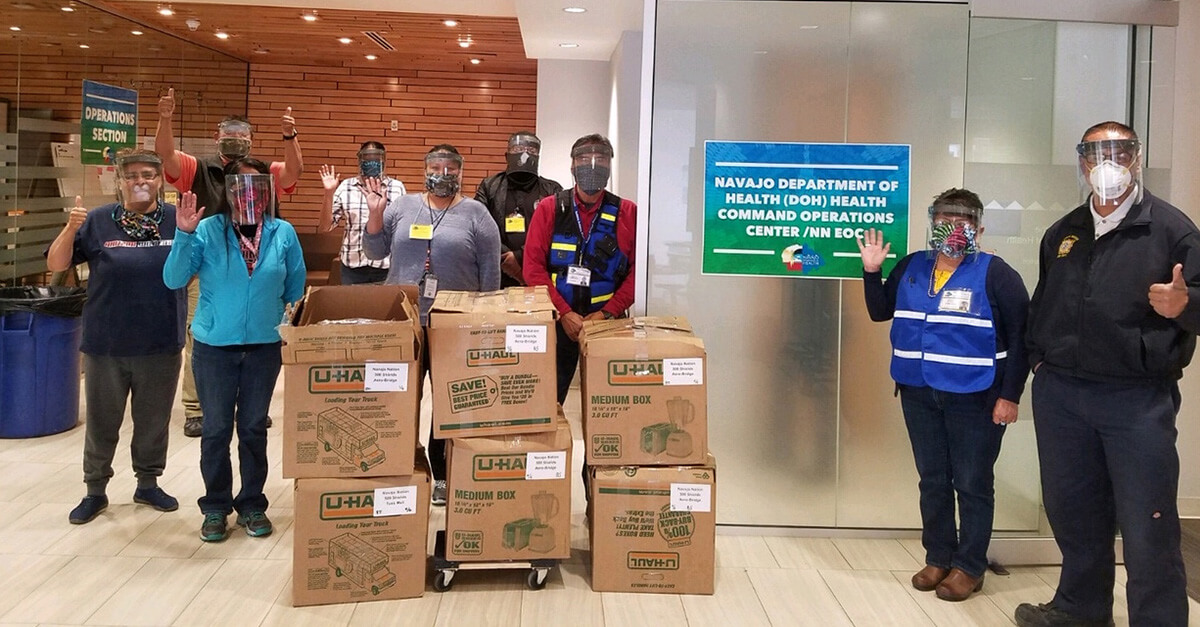
May 4, 2020
Formed in the aftermath of Hurricane Katrina in 2005, the all-volunteer organization AERObridge has experience responding in times of crisis or natural disasters, often providing a critical, initial link to humanitarian aid until larger state and federal relief organizations arrive on scene. However, the COVID-19 pandemic presents the group with a situation unlike any they’ve seen before.
“You can see a hurricane coming a week in advance, and as it gets closer you have a good idea where it will hit, what supplies will be most needed and for how long,” said Charley Valera, AERObridge vice president for media relations. “This situation requires completely different needs – and we don’t know when it will end.”
Since mid-March, AERObridge has performed missions ranging from coordinating deliveries of ventilators in North Dakota to flying personal protective equipment to a southeastern U.S. university. Another recent flight involved crossing the country from Massachusetts to New Mexico in a TBM 850 carrying 15,000 donated face shields for use throughout the Navajo Nation, which has been devasted by COVID-19.
Among the flights now underway include transporting dogs from overstressed shelters in Mexico to “furever homes” in Washington and California, a first for the organization. “We usually step in when needed and then typically fade into the background, but there’s no timetable for when we might be able to do that,” added AEROBridge volunteer and emergency services field director Brad Pierce. “So we’re focused on doing all we can for as long as we can.”
Pierce is also president and CEO of Restaurant Equipment World and has drawn from his company’s warehouse and logistical chain to locate critical supplies and equipment, which are then donated to various institutions. “I’m grateful to leverage the capabilities of my business, putting manpower to work and coordinating behind the scenes in a non-revenue capacity for those in need,” he added. “I just want to ease the burden on someone’s life.”
More than 2,100 aircraft of all sizes are registered with AERObridge, and the group recently received its own ICAO code and three-digit identifier for use on relief flights performed by its volunteer pilots. Valera noted the particular need for longer-range aircraft in the present crisis.
“We are taxpayer-free and cost-free,” he added. “However, as this situation progresses and funding falls short, we’re also looking to the FAA for relief from FAR 61.113(e) to allow full reimbursement for pilots’ operating costs on these flights. Otherwise, we expect a significant drop in available pilots and ground crew.”
Such missions also have a personal connection for Valera. “Back in 2008, I was in a small city in central Massachusetts that got hit with an ice storm that knocked our power out for a week,” he said. “No one knew about it or really seemed to care; after all, Boston was still fine.
“I remember that helpless, hopeless feeling,” Valera concluded. “That’s what got me involved.”


 International Business Aviation Council Ltd.
International Business Aviation Council Ltd.